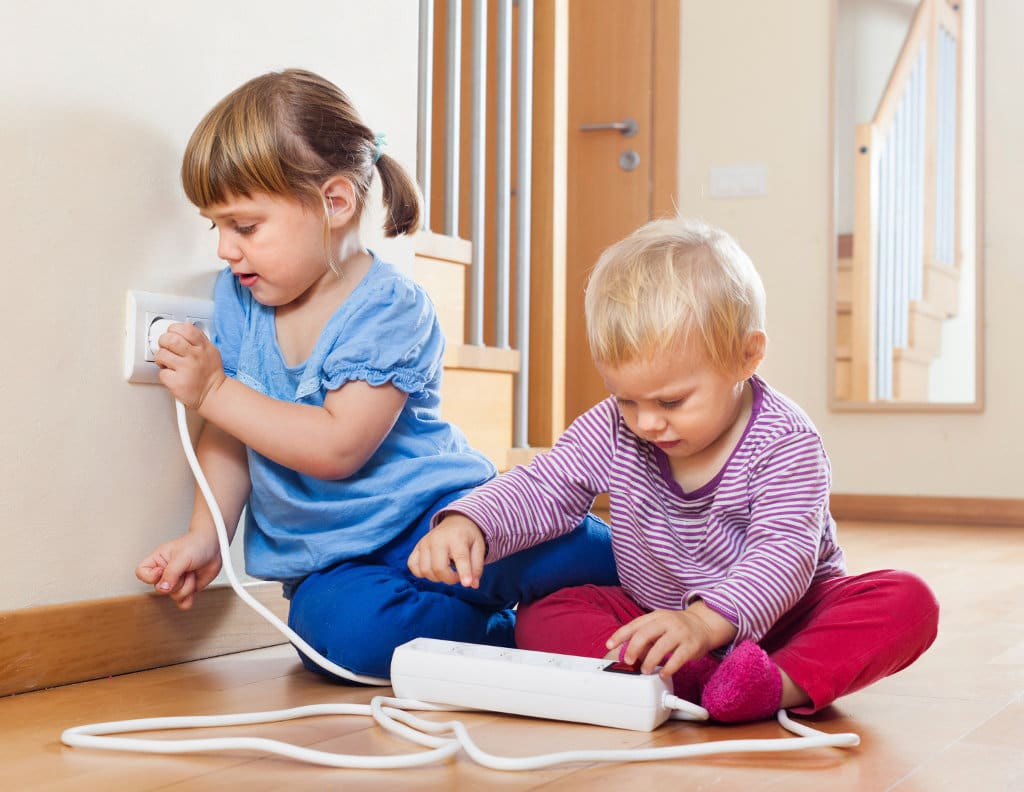November is Child Safety & Protection Month, a campaign dedicated to creating awareness about potential dangers children face in everyday situations and to provide ways to prevent any dangers. Every year, about 2.3 million children are accidentally injured and more than 2,500 are killed.
We’ve put together some tips to help child-proof your home:
- Install safety gates. Use a hardware-mounted safety gate at the top and bottom of every stairway. They can also be helpful to block access to dangerous areas like bathrooms, the kitchen and stairways.
- Strap children in. Use restraining systems in chairs to prevent injuries (look for a 3-point or 5-point harness with a crotch strap.) Always check for safety certification stickers on high chairs and swings.
- Keep sleep areas safe. An infant’s nose and mouth can be covered accidentally by fluffy pillows, comforters and stuffed animals. They restrict their ability to breathe. Keep your baby’s crib as bare as possible.
- Supervise children around the water. Never leave your child unattended in the tub, even if they’re in a ring or bath seat. Always keep toilets closed and use a safety latch. Make sure there is a fence around any outdoor pools or ponds.
- Cover all electrical outlets. Use proper grounding to help prevent electrical shock. Use plastic covers for unused electrical sockets. Repair or discard damaged electric cords. Keep children away from electrical appliances.
- Beware of all choking hazards. Check your floors regularly for small objects. And make sure small household items are stored away from a child’s reach. Make sure all battery covers are secure. Cut your child’s meals and snacks into bite-sized pieces.
- Store potentially hazardous products out of reach. Many household products are potentially poisonous if swallowed. Install cabinet guards where cleaners and chemicals are stored. Always keep products in their original container so that they aren’t mistaken for anything else.
- Secure furniture and use protective padding. Bookshelves and other furniture should be secured with wall brackets to eliminate tipping. Place protective padding on the corners of tables, furniture and countertops with sharp edges.
- Set your water heater to 120 F or less. Always check the temperature of hot water from the faucet with your elbow or hand to make sure it is a comfortable temperature.
- Keep important contacts in an easy-to-locate place:
- Emergency medical services: 911
- American Association of Poison Control: 1-800-222-1222
- Hospital ER
- Fire department
- Police department
- Child’s doctor
- Parent’s work and cell phones
- Neighbors and relatives

